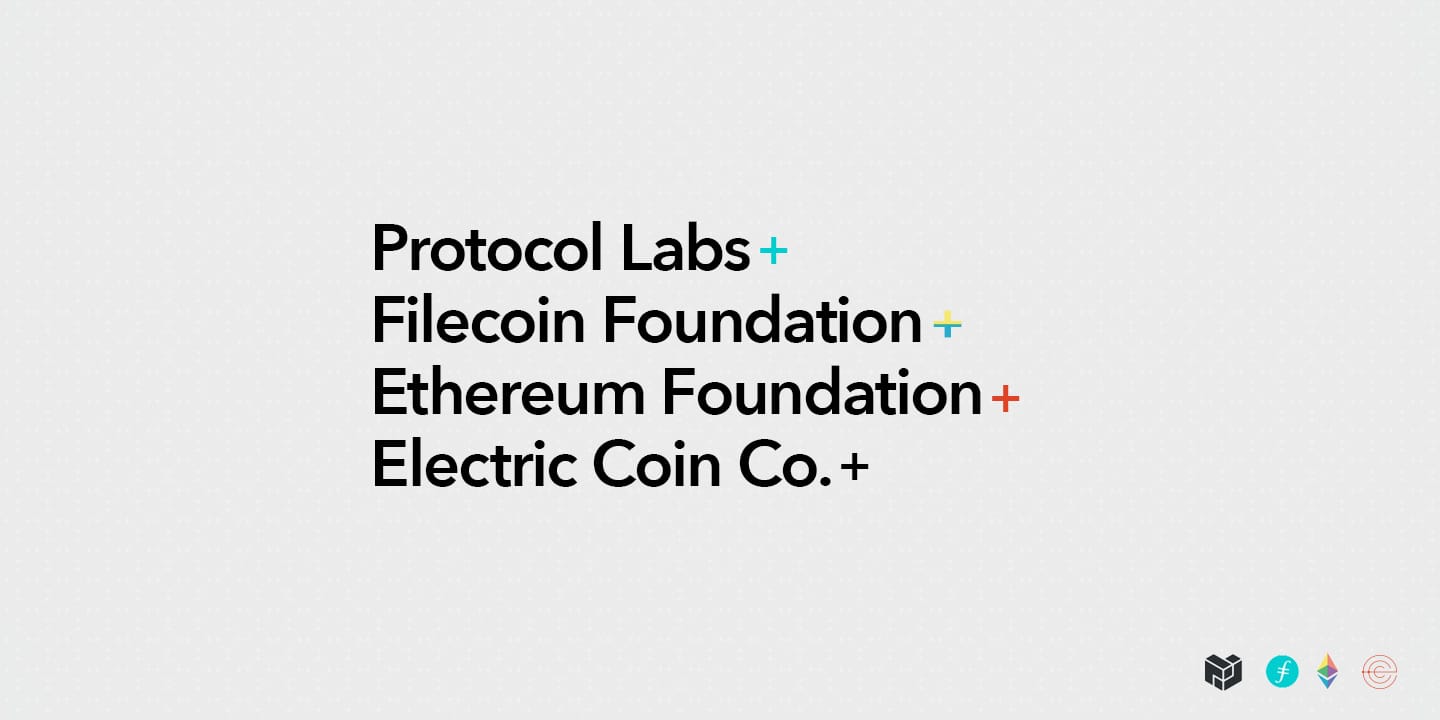The agreement aims to provide better scalability, interoperability and privacy across ecosystems and for Web 3.0
Electric Coin Co. (ECC) has entered into an agreement with Protocol Labs, the Filecoin Foundation, and the Ethereum Foundation to explore Halo R&D, including how the technology might be used in their respective ecosystems. Filecoin is an open-source cloud-storage marketplace, protocol, and cryptocurrency; and Ethereum Foundation is a non-profit organization dedicated to supporting Ethereum and related technologies.
“The result of this partnership could be that Filecoin uses Halo 2 to increase scalability. These are the kinds of ideas we’ll work on,” said ECC’s Josh Swihart, VP Growth. “Beyond that, it could improve interoperability between Filecoin, Zcash, and Ethereum; and it could open up avenues for greater privacy across all of these projects.”
Under the terms of the agreement, ECC’s parent organization, the nonprofit Bootstrap, will receive $2M and the Filecoin Foundation, Protocol Labs, and the Ethereum Foundation will join in collaborative R&D efforts aimed at utilizing recursive zk-proving systems in-protocol. Collectively, the groups will explore the following projects:
- Implementation of recursion in the Halo 2 proving system. Halo 2 itself is foundational to ECC’s scalability initiative for Zcash, since recursion enables options such as transaction aggregation and succinct blockchains. Recursion also potentially enables novel zero-knowledge technologies such as a “zero-knowledge Ethereum Virtual Machine.”
- Potential integration of Halo 2 into the Filecoin proof system. The primary benefit of a possible Halo 2 integration into Filecoin would be scalability so that large numbers of users can interact with the platform inexpensively and efficiently. By leveraging recursion in Halo 2, the amount of proof data stored on-chain in Filecoin can be significantly reduced.
- Implementation of a Halo 2 proof for the efficient Verifiable Delay Function (VDF) being developed. A VDF is a cryptographic primitive that has many potential use cases. It can be used as a source of general purpose randomness including use in smart contract applications as well as leader election in Proof of Stake consensus protocols.
ECC, the Filecoin Foundation, Protocol Labs, and the Ethereum Foundation will also be working with SupraNational, a vendor specializing in hardware-accelerated cryptography, for potential GPU and ASIC design and development of the VDF.
“We’ve clearly entered the multi-chain era and the importance of interoperability can’t be overstated,” said ECC’s Steven Smith, VP of Engineering. “Cross-chain proof verification enables a number of interesting possibilities.”
“Imagine a scenario where people write smart contracts on Ethereum using Filecoin for storage and shielded ZEC within that contract to pay for the file storage. We’re early, but this partnership is about possibilities,” Swihart said.
Halo 2 will be implemented in Zcash in January with the launch of Halo Arc for Zcash, a product suite for the next generation of Zcash, including updates to Zcashd, the ECC Reference Wallet apps, and the ECC wallet SDKs.
~~~
EVENT
Vitalik Buterin of Ethereum, Zooko Wilcox of Electric Coin Co. and Marta Belcher of the Filecoin Foundation will appear together with panel moderator Ryan Selkis of Messari, Tuesday, Sept. 21 at 9:30 am EDT on the main stage as a part of Messari Mainnet. The topic is “The Future of Web 3.” Questions will not be taken from the audience in real time, but questions can be submitted in advance through the Mainnet site.
